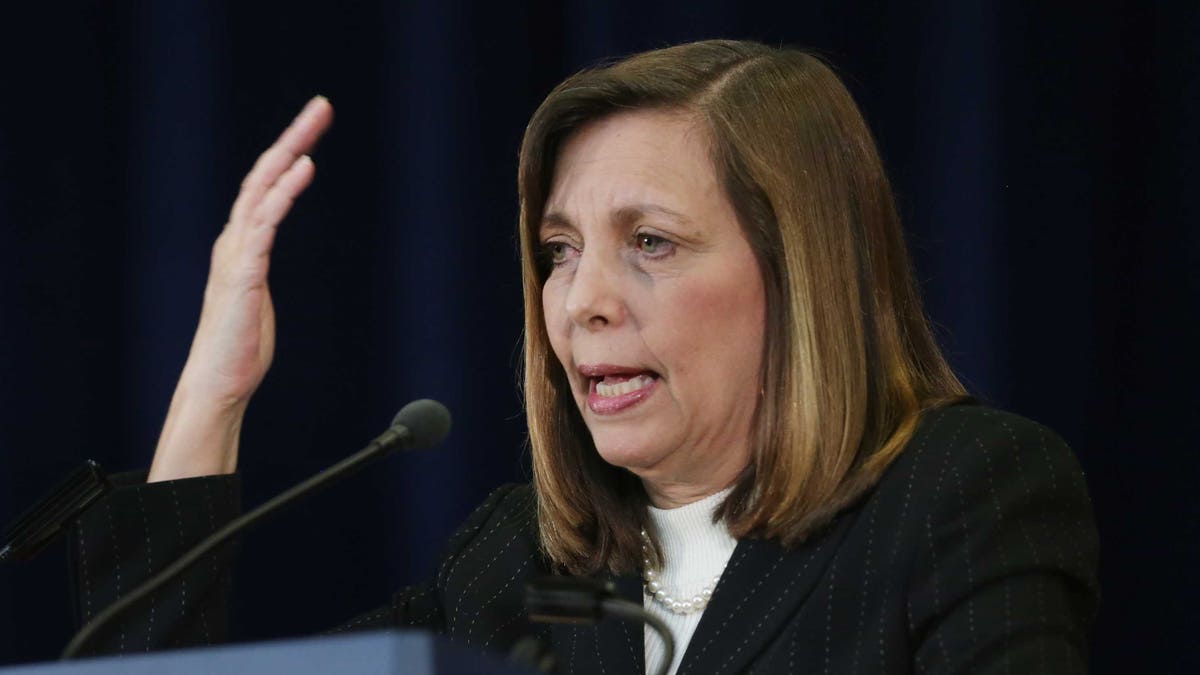
Cuban Foreign Ministry Director for North America Josefina Vidal (2015 Getty Images)
Revealing few details, officials of Cuba and the United States said they had made progress in two days of talks about re-opening embassies in each other’s nations but indicated that hurdles remain.
At a joint press conference Friday, members of the U.S. and Cuba delegations said that they have not finalized agreement on the re-establishment of embassies, but that they will keep talking through their missions.
“Each time we have met we have made progress,” said the top U.S. diplomat for Latin America, Roberta Jacobson, adding, “I don’t know that we will need another round of talks."
Asked about the level of freedom of movement for embassy personnel in Cuba that she envisioned would result from the negotiations, Jacobson said, "We are confident that when we get to an agreement, our embassy will be able to function so that our officers can do their job as they do worldwide."
Five months after Presidents Barack Obama and Raúl Castro announced their intention to improve ties, the former foes on Friday completed a fourth round of negotiations without ironing out enough of the differences that have accumulated over a half-century of estrangement to fully restore diplomatic relations.
Jacobson said that while she is staying optimistic, “I’m also a realist about 54 years that we have to overcome.”
Appearing first, the Communist government's top diplomat for the United States, Josefina Vidal, was circumspect.
She avoided any description of the remaining obstacles to restoring diplomatic relations and offered no criticism of the United States, but said two days of discussions in Washington focused on "every aspect of the functioning of embassies and the behavior of diplomats."
Vidal also noted that the Cubans are "willing" to discuss the lifting of the U.S. embargo.
Even as many of the biggest hurdles have been cleared, Washington and Havana are still wrangling over American demands that its diplomats be able to travel throughout Cuba and meet dissidents without restrictions. The Cubans are wary of activity they see as destabilizing to their government.
Asked if any agreement had been reached on what sort of activity constituted "interference" in the internal affairs of another nation, Jacobson responded, "I'm not going to get into specifics on topics that we are still talking about."
Cuba comes off the U.S. state sponsors of terrorism list on May 29, removing a designation that carries financial repercussions. And its Interests Section in Washington now has a U.S.-based bank account, meaning it doesn't have to operate on cash anymore. Obama also has moved to significantly loosen aspects of the American trade embargo on the island.
U.S. gains in the negotiations have been less apparent.
Both the U.S. and Cuba say establishing embassies is the first step in a larger process of "normalizing" relations.
That effort would still have to tackle bigger questions such as the embargo, which only Congress can fully revoke, as well as the future of Guantanamo Bay and Cuba's democracy record.
James Williams, President of Engage Cuba, a group that supports U.S.-Cuba diplomatic relations, said in a statement to Fox News Latino: "It is clear that significant differences exist between our countries, but the only way to move forward on them is to sit down face-to-face and firmly make it clear where we stand."
“Today’s talks are a reminder that America’s presence isn’t a concession, it is a show of strength, and the best way to promote our values and create opportunities for both Americans and the Cuban people. Now Congress should do its job and lift the travel and trade ban so that we stop waiting and begin connecting with and investing in the Cuban people."
The Associated Press contributed to this report.
Like us on Facebook




